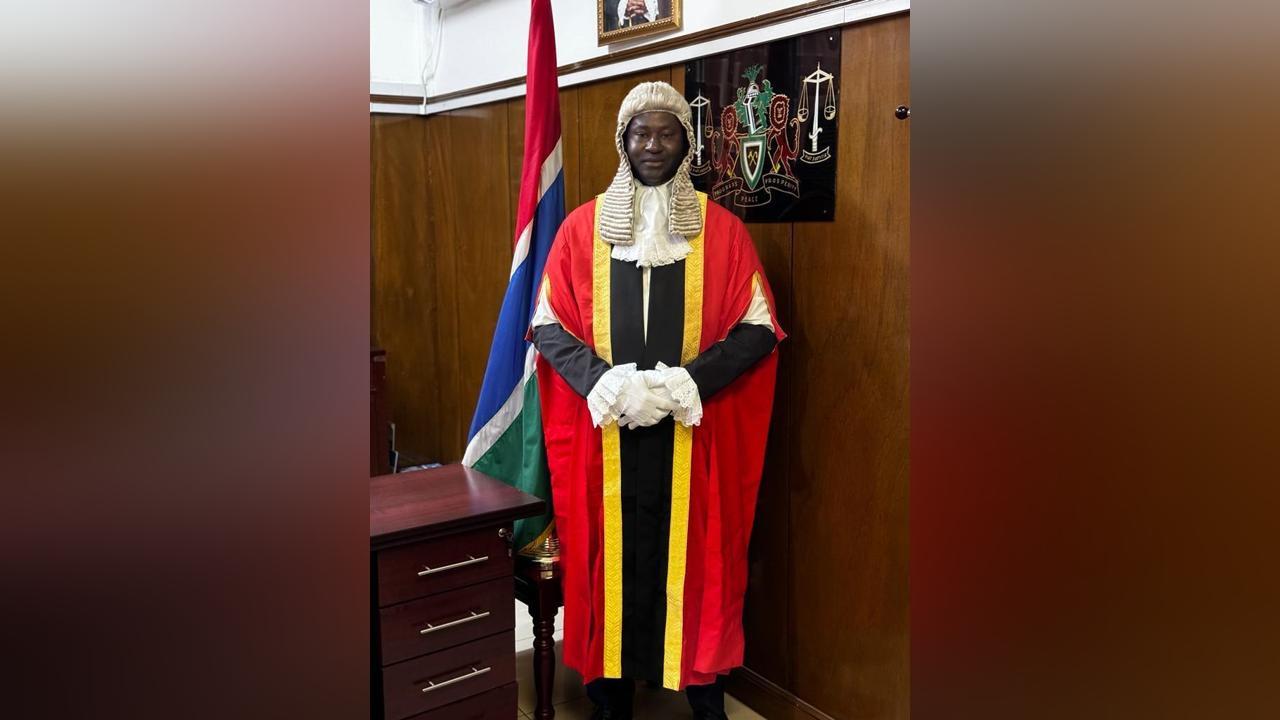Africa-Press – Gambia. The High Court, presided over by Justice Ebrima Jaiteh, has overturned a decision of the Kombo North District Tribunal in a protracted land dispute between Inna Puye (Appellant) and Koko Williams (Respondent), citing jurisdictional overreach and serious evidentiary shortcomings.
The judgment followed an appeal lodged by Inna Puye on July 19, 2022, challenging the Tribunal’s earlier decision rendered on June 8, 2022. Puye advanced nine grounds of appeal, alleging legal and factual errors as well as a significant breach of jurisdiction by the Tribunal.
At the hearing, Appellant Inna Puye was represented by Counsel F. Jammeh. The Respondent, Koko Williams, failed to appear despite having been duly served via substituted service.
Justice Jaiteh identified four critical issues for determination and ruled in favor of the Appellant on all counts. The High Court found that the Tribunal’s decision was not only legally unsound but also procedurally defective.
The High Court held that the Kombo North District Tribunal acted ultra vires—beyond its lawful authority—when it declared that any land transaction not originating from the Alkalo of Latriya Village was “unauthentic, null, and void.” Justice Jaiteh found that this pronouncement was made without any specific relief having been sought by the Respondent and could potentially infringe upon the property rights of third parties.
Citing Bello v. Attorney General of Oyo State (1986), the Court emphasized that judicial bodies must restrict themselves to the issues and reliefs specifically brought before them.
The Tribunal was found to have misapplied customary land law principles by concluding that the Respondent had met the burden of proof. Justice Jaiteh reiterated that in customary land disputes, the onus lies on the plaintiff to prove lawful allocation, root of title, and long-term possession.
The Respondent, Koko Williams, claimed allocation from the current Alkalo of Latriya, Mr. Ebou Latri Darboe, but failed to present any supporting documentation, corroborating witnesses, or evidence of community consensus. In contrast, the Appellant provided both oral and documentary evidence from the Alkalo of Busumballa and the Jatta family, as well as proof of occupation and development of the land dating back to 2001.
The High Court found that the Tribunal’s reliance on unverified historical narratives—including the creation of Latriya Village in 1964 and the alleged land allocation to Pa Latri Darboe—was fundamentally flawed due to the absence of any formal documentation, such as gazettes or official boundary plans.
In addition, the Tribunal’s claim that multiple site inspections had taken place with all parties present was contradicted by the Appellant’s uncontested testimony. She stated that only a single visit occurred, attended solely by the court scribe. Justice Jaiteh emphasized that customary law must be proven through credible and cogent evidence and must pass the “repugnancy and incompatibility test” as outlined in Section 13 of the Evidence Act—a standard the Tribunal failed to apply.
Justice Jaiteh noted that the Tribunal failed to give adequate consideration to the Appellant’s uninterrupted possession and development of the land. The credible, unchallenged testimony of the Alkalo of Busumballa Village—affirming that the land is within Busumballa’s jurisdiction and was properly allocated to the Appellant—was also overlooked.
The Respondent’s vague and inconsistent claims, particularly concerning the size and allocation of the land, further weakened her case.
Having found that the Tribunal’s decision was “perverse and against the weight of credible evidence,” the High Court issued the following orders:
· The appeal is upheld in its entirety.
· The Kombo North District Tribunal’s judgment of June 8, 2022, is hereby set aside.
· The Respondent’s original claim before the Tribunal is dismissed for lack of merit and evidentiary foundation.
· The Respondent failed to establish a superior claim of title over the Appellant.
· Costs in the sum of D50,000.00 are awarded to the Appellant to cover legal expenses and compensate for the prolonged hardship and delays.
· The Appellant is entitled to continue in peaceful possession and occupation of the disputed land unless lawfully evicted by a competent court in accordance with due process.
This ruling underscores the High Court’s continued insistence on procedural rigor, evidentiary integrity, and respect for constitutional protections in land adjudication processes.
For More News And Analysis About Gambia Follow Africa-Press






